Hans Deppe
Birth : 1897-11-12, Berlin, Germany
Death : 1969-09-23

Prälat
An elderly lady has a trauma and simply must celebrate Christmas every day of the year, to the dismay of her family and relatives.

himself

Edward Jamisen

Adolar Mauske

Schultze

Director

Director

Arthur Raabe

Marineleutnant a.D. Schewakin

Director

Director

Director

Director

Director

Director
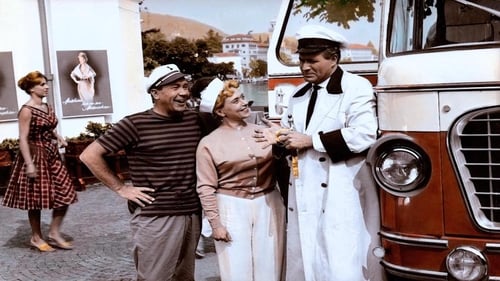
Director

Director

Director
Cafe owner Paul Perlacher is a real pig: not only are his daughter and sister Trude embarrassed constantly by his disgusting behavior, but his tenants are subjected to every legal trick under the Sun to get them to move out. Nevertheless, Amalie Hartning's a stubborn woman and can take care of herself well when it comes to her tyrannical landlord. If that weren't enough for Paul, his daughter's gone and fallen in love with the nephew of this pain in rear! And when Paul's ordered to jail by the courts, that really is the last straw.
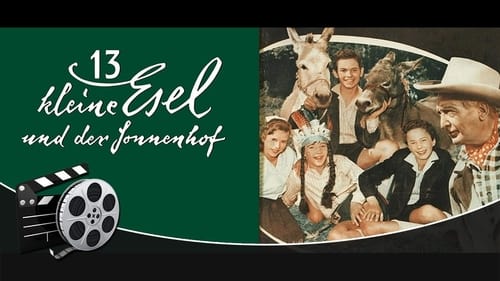
Director

Director

Producer

Director

Director

Producer

Director

Producer
Another German Heimatfilm.

Director
Another German Heimatfilm.

Director

Director

Buchhändler

Director

Director

Producer

Director

Director

Producer

Director

Producer

Director

Director

Director
A romantic drama directed by Hans Deppe.

Director
Married couple Willy and Therese go separate ways. Willy leaves town and returns years later as a famous singer. But Therese is about to marry her best friend Peter. Little does Willy know that he and Therese now have a teenage daughter.

Producer

Director

Producer

Director

Director
Directed by Richard Eichberg.

Director
After the end of World War II Lüder Lüdersen, the former owner of a feudal estate in the East, and his daughter Helga arrive as refugees in the Lüneburg Heath. While living a seemingly happy life on the estate of his cousin, Lüdersen hides a dark secret: he is a poacher.

Director
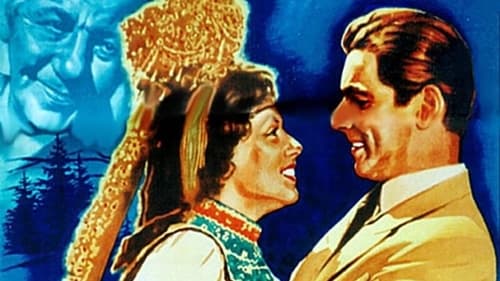
Director
The painter Hans Hauser falls head over heels in love with the "Black Forest girl" Bärbele Riederle. He travels to her home village and soon the two realize that they are made for each other.
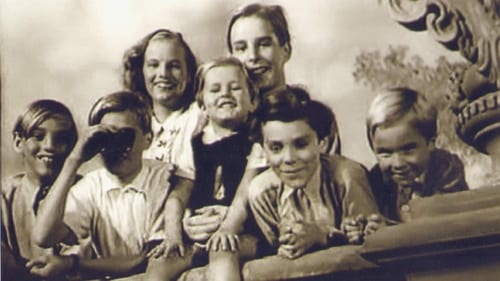
Director

Director

Director

Director

Emil Lemke
Long before he played the corpulent Goldfinger, German actor Gert Froebe was a scarecrow-skinny comedian. In Berliner Ballade, Froebe makes his screen debut as Otto, a feckless Everyman who tries to adjust to the postwar travails of his defeated nation. Stymied by black-market profiteers and government bureaucrats, Otto begins fantasizing about a happier life at the end of that ever-elusive rainbow. Director R. A. Stemmle doesn't have to strive for pathos: he merely places his gangly star amidst the ruins of a bombed-out Berlin, and the point is made for him. Filmed in 1948, Berliner Ballade was later released in the U.S. as The Berliner.

Screenplay

Director

Director

Director

Director
A few days before the planned wedding of the chief inheritor von Halleborg, he experiences a terrible blow: his beloved bride Julia has a riding accident and dies of her injuries. Von Halleborg becomes a broken man and chooses not to waste another moment thinking of love -- his heart belongs to Julia ... forever. In doing so, von Halleborg runs the risk of losing his entire estate, for the conditions of inheritance make all to clear that if he does not marry by his 45th birthday, the estate is to be turned over to someone else. Von Halleborg had already made peace with this fact until he discovers that the future lord of the manor will be his nephew Oskar, a selfish and ruthless scoundrel, concerned only with money.

Director

Director

Director

Director

Director

Director

Director

Director
The feisty boss of a chain of cafes wants to push the youngest of her daughters off on a husband, who would be well-suited to take over the business one day. And although the widow Bohler causes a lot of confusion in her struggle to find happiness for her daughter, everything ends up working out well in the end.

Director

Writer

Director

Director

Director

Director

Director
Old Meiseken, a gingerbread baker, has been dead for three years, but his bosses don’t know that. They’ve been paying him his pension all this time, unaware that his former landlords have been cashing the checks. When, one day, the assistant head of the bakery, Tony, pays a visit to Meiseken’s place to get a hold of an old recipe, someone’s got to play the part of Meiseken! The fraud blows up in the landlords’ faces; but in the end, Tony gets the recipe book and even a new bride.

Director

Director
In the first light of day, one can see a mountain farm close to the forest. Nothing stirs far and wide. Suddenly, a figure comes out of the forest, running quickly to the farm. There's a quick grab and the hunting rifle is hidden in the gutter. There's a jump to the window sill: Obermeier Martl creeps like a cat into his room. No one's seen him. At the same time, the doorbell rings at Doctor Rauch's place. The hunter's mate Hias is standing outside. "Doctor, you have to bandage me: I've been shot!" By whom, he doesn't know.

Director
Film by Deppe.

Paul Spittel - Straßenmusikant

Director

Director

Director

Director

Director

Director
Nacht der Verwandlung (A Night of Change) stars Gustav Froelich as a globe-circling aviator, a character clearly based on America's Wiley Post. While basking in his celebrity at a nighttime carnival, Froelich romances Rose Stradner, the unhappy wife of brutish Heinrich George. When George refuses to give Stradner her freedom, she takes it anyway, but her fling with Froelich is doomed to disappointment. Our hero learns the hard way that one can be in a teeming crowd, yet still be all alone. Leading lady Stradner later resettled in Hollywood, where she appeared in such films as The Last Gangster and Keys to the Kingdom.

Director

Director

Director
Count Egge, a “special person” of noble birth, is rather conceited and has given his kids the old heave-ho, because they chose “unsuitable partners: Countess Litty picked the penniless painter Forbeck and Master Tassilo the rather common Anna. During a trip with his peasant lover, the second son of the Count, Willy, has a fatal accident. Kitty followers her painter-bum to Italy. One day, during a dramatic hunting party at the Eagle’s Nest, Count Egge goes blind. These strokes of bad luck as of late turn the self-centered noble into an accessible person and his heart softens. After coming to terms with his kids, he finds inner peace in the bosom of his ancestral seat, shrouded in secrets: Castle Hubertus.

Willibald Bisam

Writer
Freely adapted from Theodor Storm's novella of the same name.

Iven, Knecht
Freely adapted from Theodor Storm's novella of the same name.

Director
Freely adapted from Theodor Storm's novella of the same name.

Nazi propaganda film based on the life and death of Hitler Youth Herbert "Quex" Norkus – in the film, renamed Heini Völker – who was killed while distributing flyers in a Communist neighborhood.
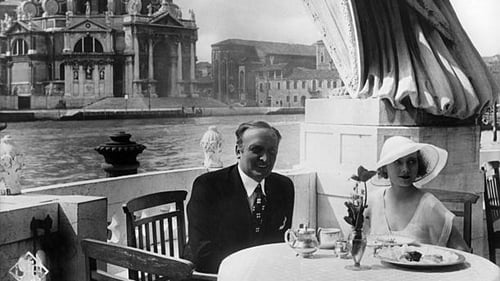
Rossi

Taschendieb

A dashing marquis bends from his horse when he discovers a lost garter in the woods and falls. During his delirium he is serenaded by a little hairdresser. She is the person who lost the garter to begin with and has only come to get it back having borrowed it from her employer--the empress of France. The marquis mistakenly thinks he was nursed by the empress, herself, and decides to woo her.
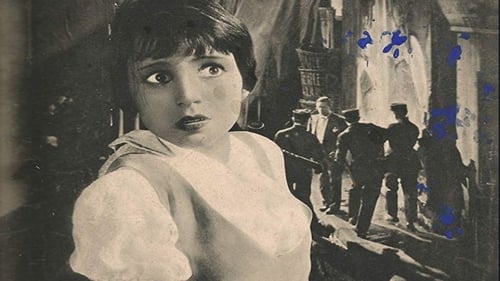
José
Young French student Madeleine Duchanel wants to go to the theater and therefore pulls out of the well-protected environment of her school. In Paris she hopes to make a career, but in her naivety she ends up on the street.

Schulrat Klein

Acki
Detective Hans Braumüller is trying to untange the conspiracy behind a bank robbery.

Merrymans Sekretär
Rival window cleaners Willy I and Willy 2 befriend Jou-Jou, an aspiring dancer, who has been tricked out of money by a con-man posing as an American movie mogul, and together they turn an old railway carriage into a "Villa Hollywood" for her.
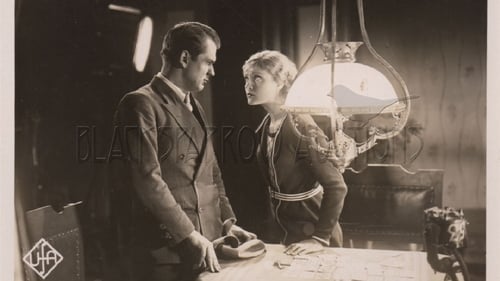
Two inspiration sources appear clearly: contemporary American gangster movies and Alfred Döblin’s novel Berlin Alexanderplatz (1929).
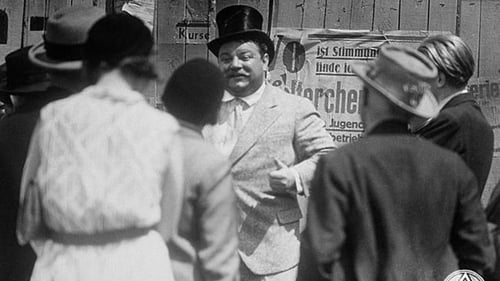
Gast bei Henschke
Franz Biberkopf has served four years in prison. His return to normal life is not successful.

Film by Lupu Pick.
















